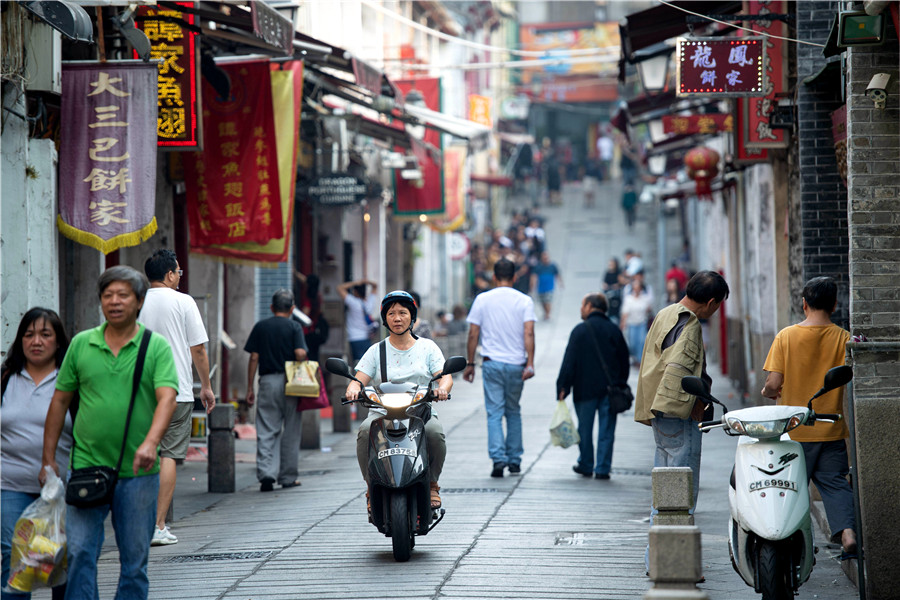City keeps writing its personal success story
The Chinese population has a history of taking charge of its own affairs, and that tradition is alive and well. Aska Cheong reports


Taking the lead
As de facto governors of their own communities, the Chinese population took the lead in maintaining social stability and living standards. Associations sprang up to deal with the many different issues people had. Thus, the development of the association culture is closely linked with Macao's political climate, Lam said.
Io Hong-meng is chief supervisor at the General Union of Neighbourhood Associations of Macao. The 70-year-old has been involved in association work since the early 1980s, and has seen all Macao's ups and downs since the start of the reform and opening-up policy.
"Benefiting from the thriving mainland market after reform and opening-up, the city's economy took off in the 1980s," he said. "Factories received a lot more orders, and the city saw many new arrivals from the mainland. Most of the new immigrants lived in squatter areas or resettlement areas, which provided very poor, crowded conditions. Our association helped them gain access to electricity and water."
According to Lin Guangzhi, director of the Institute for Social and Cultural Research at Macau University of Science and Technology, the number of associations has grown along with Macao's population.
"Owing to a rising population in recent decades and growing expectations of better living conditions, the number of registered associations has ballooned," he said.
Legislator Agnes Lam Iok-fong said that after the city returned to the motherland in 1999, the civic government began producing positive results, including higher revenue, which enabled it to provide more and better public services such as healthcare and education.
While this relieved some of the burden on the associations, they remain important, especially as an "opinion buffer zone" when new government policies are enacted, she added.
Lin said the associations also help newcomers to integrate with their new home: "New immigrants are cut off from their hometowns. When they first arrive in Macao, people who come from the same village will greet them and help them out."
The Macao Jiangmen Communal Society is one such association. Established in 2002, it aims to connect people from Jiangmen, Guangdong province, who are seeking business opportunities in Macao, said Ha Chon-ieng, the society's executive vice-president.
While the organization's members may participate in local politics, they don't leave their Jiangmen identity behind. The society organizes community affairs workshops on the mainland every year for people from Jiangmen and their descendants. Participants from Macao first attend courses to learn about the condition of the nation, and then visit the community center in Jiangmen to learn about the society on-site, according to Ha.
- Beijing witnesses snowfall
- Tongji University's Wu Jiang assumes presidency of architects' Asia council
- PLA carries out drone training operations near Dongsha Islands
- PLA monitors US naval vessels transiting the Taiwan Strait
- Losar warmth in a new home
- New carrier rocket built by Beijing company fails in maiden flight




































